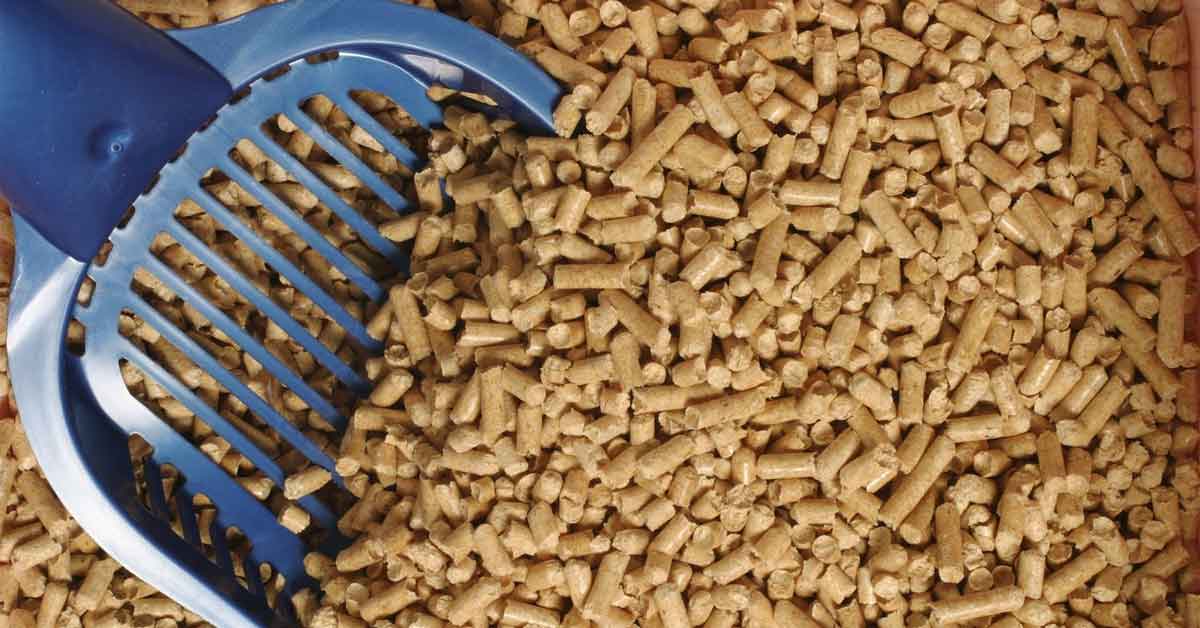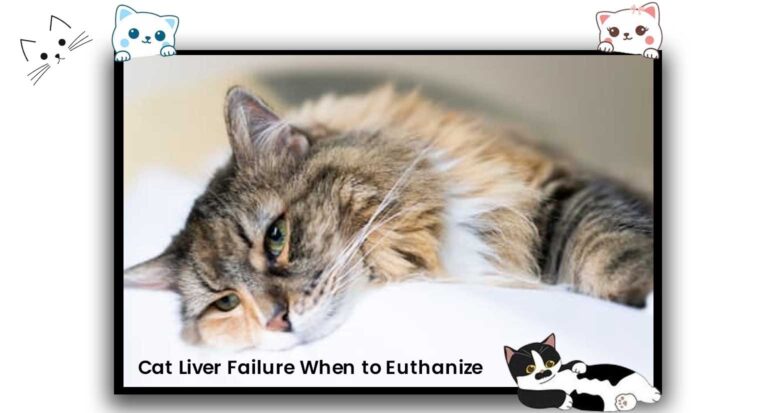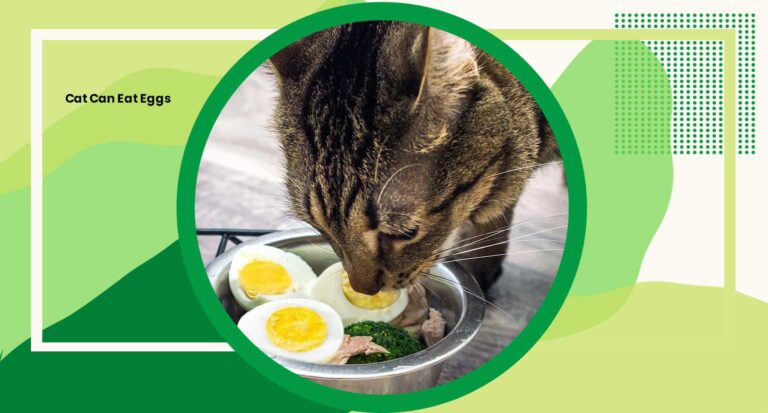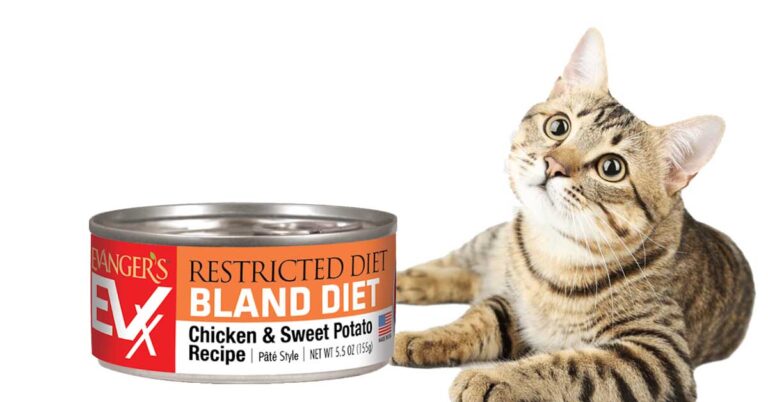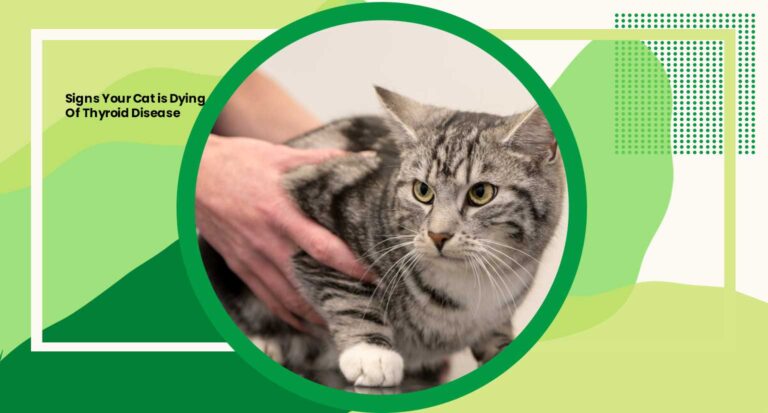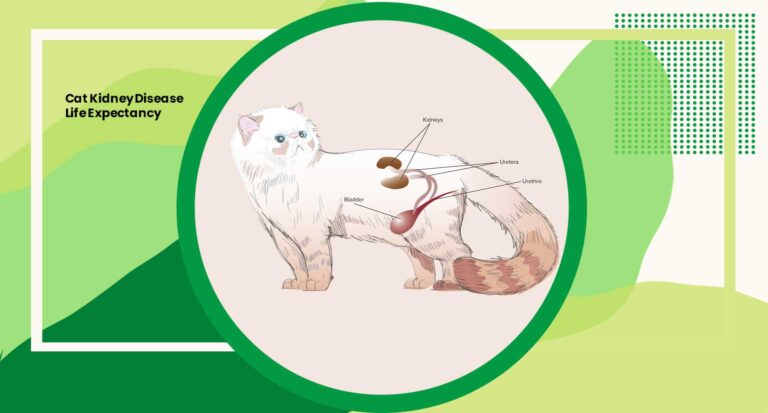Best Litter for Cats with Asthma
For many cat parents, finding the best litter for cats with asthma is of paramount importance. The fact that our feline companions can suffer from respiratory issues similar to humans is a surprising revelation for many. Feline asthma, a chronic condition often triggered by environmental factors like dust particles, can make even the most mundane task – such as using the litter box – a potential health risk for our furry friends.
It’s an important factor to consider the type of cat litter you’re using if your pet has sensitive respiratory systems. Traditional clay litters, for example, may exacerbate asthma symptoms due to the presence of silica dust and artificial fragrances. That’s where the role of a good cat litter comes in – one that’s less dusty, made from natural materials, and gentle on your cat’s paws and airways.
In the quest for the right litter, there are many options available. From natural cat litter made of walnut shells and wood fiber, to paper pellet cat litter like Yesterday’s News cat litter, to clay cat litters and crystal cat litters – the choice can be overwhelming. But worry not, we’re here to provide the top picks, backed by expert insights, to help you find the best option for your asthmatic cats.
Understanding Feline Asthma
Before delving into the realm of cat litter, it’s essential to understand what feline asthma entails. Similar to human asthma, this chronic condition causes chronic inflammation and constriction of the cat’s airways, leading to symptoms such as difficulty breathing and respiratory distress. The triggers are often environmental factors, like dust mites, cigarette smoke, and even dusty cat litter.
The cat’s immune system reacts to these triggers, causing an asthma attack that can range from mild to severe. Depending on the severity, a cat with asthma might show symptoms such as coughing, wheezing, and shortness of breath. It’s a health problem that needs to be carefully managed, often requiring medical treatment alongside modifications in the cat’s environment.
One crucial aspect of managing feline asthma is controlling the environment around your cat, especially the substances they breathe. And that’s where the type of litter in your cat’s litter box comes into play. As a cat parent, ensuring that your pet’s litter is free of substances that could trigger an asthma attack is of utmost importance.
Symptoms of Asthma
Understanding the symptoms of asthma can be instrumental in managing your cat’s health. If you’re unsure whether your feline friend has asthma, keep a lookout for the following signs:
- Difficulty in breathing: You may notice your cat struggling to breathe or breathing with its mouth open.
- Coughing and wheezing: These are common symptoms, although coughing in cats can sometimes be mistaken for hacking up a hairball.
- Increased respiratory rate: A cat with asthma might breathe faster than usual.
- Frequent coughing or gagging without expelling a hairball: This might indicate that the cat’s airways are restricted.
- Lethargy or reduced activity: Cats with asthma might be less active due to difficulty in breathing.
- Blue gums: In severe cases, a cat’s gums might turn blue from lack of oxygen.
If you observe these symptoms in your cat, it is essential to consult a vet immediately. Remember, feline asthma is a chronic condition that requires professional diagnosis and treatment. As part of that treatment, making changes to your cat’s environment, such as using the best litter for cats with asthma, can help manage the condition and prevent severe asthma attacks.
Choosing the Right Litter
Once diagnosed, one of the most important steps in managing feline asthma is to select the right litter. Your choice can significantly impact the frequency and severity of your cat’s asthma attacks. While the ideal litter type may depend on your cat’s personal preference and health status, there are some general guidelines to follow when choosing the best litter for cats with asthma:
- Dust-free litter: One of the primary triggers of asthma attacks in cats is dust. Therefore, selecting a dust-free or low-dust cat litter can help minimize these episodes.
- Natural ingredients: Natural litters made from materials like walnut shells, wood fiber, or paper pellets can be a good idea. These litters tend to produce less dust and contain no artificial fragrances that could trigger an asthma attack.
- Unscented: Cats with asthma can be particularly sensitive to strong scents. Therefore, unscented litters are generally a better choice for these felines.
- Non-clumping or tight clumping: Clumping litter often creates dust when cats scratch or dig. However, some brands produce hard clumps that minimize dust. You could also consider non-clumping litter, which usually creates less dust.
Remember, what works best for one cat might not work for another. Trial and error might be necessary to determine what kind of litter your cat prefers and what helps alleviate their symptoms.
Attributes of Asthma-Friendly Litters
With the myriad of cat litters on the market, it can be quite daunting to find the best option for your asthmatic cat. But knowing the attributes of asthma-friendly litters can narrow down your choices and lead you to a suitable solution. Here’s what to look for:
- Low dust: Look for litters that advertise low dust or dust-free properties. Remember, dust particles can trigger asthma symptoms, so the less dust, the better.
- Hypoallergenic: Some cats might have allergic reactions to certain types of litter. A hypoallergenic cat litter reduces the chances of an allergic response and hence the risk of an asthma attack.
- Natural materials: Litters made from natural materials such as wood, paper, or corn are often less dusty and can be a great choice for cats with asthma.
- Free of artificial fragrances: Perfumed litters can irritate a cat’s respiratory system. Choose litters that are unscented or use natural agents like activated charcoal for odor control.
- Easy scooping: The litter should form solid clumps or tight clumps for easy scooping without creating dust.
Knowing these attributes allows you to make an informed decision when choosing the right litter for your cat. It might take some trial and error, but finding a suitable litter that your cat is comfortable with and that also helps manage their asthma symptoms is well worth the effort.
Dust Management
One of the most critical factors in choosing the right litter for your asthmatic cat is dust management. Dust from traditional clay litters or silica litters can trigger an asthma attack, leading to difficulty breathing and other distressing symptoms. Hence, the best cat litter for cats with asthma is typically one that produces less dust.
Several types of litters are considered low dust or even dust-free. Paper cat litter, for example, like Yesterday’s News, is made of recycled paper and is almost completely dust-free. Similarly, wood fiber or walnut shells-based litters such as Feline Pine also tend to produce less dust than clay-based or crystal cat litters.
When it comes to dust management, another good practice is to regularly clean and maintain the cat’s litter box. A clean litter box not only reduces dust but also helps in better odor control and keeps the cat’s paws clean.
Keep in mind that while some dust is inevitable, the goal is to reduce it to a minimum to prevent triggering your cat’s asthma symptoms.
Hypoallergenic Cat Litters
Another important factor to consider when selecting the best litter for cats with asthma is whether it is hypoallergenic. Cats, like humans, can have allergic reactions to certain substances, and these reactions can aggravate asthma symptoms. Hypoallergenic cat litters are designed to minimize these reactions, making them a good option for asthmatic cats.
These litters typically use natural ingredients, avoiding artificial fragrances and additives that might cause allergic reactions. They also often feature natural materials like paper, wood, or corn instead of silica gel or clay, which can create dust and trigger allergies.
Brands like Dr. Elsey’s, Fresh Step, and Yesterday’s News offer hypoallergenic options that can be an excellent litter choice for cats with asthma. However, it’s important to note that ‘hypoallergenic’ does not mean ‘allergen-free’. Some cats might still react to certain components in hypoallergenic litters, so it’s important to monitor your cat’s reactions when introducing a new litter.
Overall, choosing a hypoallergenic cat litter can significantly reduce the risk of allergic reactions and asthma attacks in your cat, making them a worthy consideration for any cat owner.
Turning Towards Natural Litters
In recent years, natural litters have emerged as a popular choice for cat owners, particularly those with cats suffering from respiratory issues like asthma. Made from natural materials like corn, wheat, walnut shells, or paper, these litters offer several advantages over traditional clay and silica litters.
One of the primary benefits is that natural litters generally produce less dust than their clay-based counterparts. This reduction in dust can make a significant difference for asthmatic cats, reducing the likelihood of triggering an asthma attack when using the litter box.
Natural litters also often lack the artificial fragrances found in many traditional litters. These scents can irritate a cat’s airways and trigger asthma symptoms, so using an unscented natural litter can help keep your cat’s respiratory system healthy.
Some popular natural litters include Feline Pine, which is made from compressed pine particles, and Yesterday’s News, a paper-based litter. Both are excellent choices for asthmatic cats thanks to their low-dust, unscented characteristics.
Ultimately, while the best litter for your cat will depend on their personal preference and health needs, turning towards natural litters can be a good first step in managing your cat’s asthma.
Specific Options for Asthma-Friendly Litters
With a better understanding of what to look for in asthma-friendly litters, let’s delve into some specific options that are widely recognized as being good choices for cats with asthma. Each of these top picks offers a unique combination of properties that make them suitable for asthmatic cats.
Dr. Elsey’s Precious Cat Respiratory Relief Clay Litter
Designed specifically for cats with respiratory issues, this hypoallergenic litter from Dr. Elsey’s forms hard clumps for easy scooping and is virtually dust-free, helping to minimize the risk of triggering an asthma attack.
Fresh Step Simply Unscented Lightweight Clumping Cat Litter
Fresh Step’s unscented lightweight litter provides excellent odor control without artificial fragrances. Its tight clumping formula makes cleanup easy while minimizing dust.
Feline Pine Original Cat Litter
Made from natural Southern Yellow Pine, Feline Pine absorbs liquids quickly and locks in odors without the need for artificial fragrances or dust.
Yesterday’s News Unscented Paper Cat Litter
Yesterday’s News uses recycled paper to create a virtually dust-free and unscented litter. It’s a non-clumping formula, which can further help reduce potential irritants for cats with asthma.
Each of these litters brings something different to the table, so the best option for your cat may be a matter of personal preference and specific health needs. Don’t be afraid to experiment until you find the one that works best for your feline friend.
Dr. Elsey’s Cat Litter
Among the cat litters specifically designed for cats with respiratory issues, Dr. Elsey’s Respiratory Relief Clay Cat Litter stands out. This hypoallergenic product forms solid clumps for easy scooping and is virtually dust-free, which can help minimize the risk of triggering an asthma attack. The litter is infused with herbal essences, which may also help to soothe stressed cats.
Not only is Dr. Elsey’s litter made with a low-dust formula, but it also uses natural ingredients to avoid irritating your cat’s sensitive respiratory system. These features make it a good option for cat owners looking to manage their cat’s asthma symptoms effectively.
Importantly, even though it’s a clay litter, it does not contain the type of clay – sodium bentonite – that can potentially harm cats when ingested. Instead, Dr. Elsey’s uses a more natural clay that hardens when wet to create clumps, leading to easy and safe removal.
In summary, Dr. Elsey’s Cat Litter may be an excellent choice for asthmatic cats due to its dust-free nature, hypoallergenic properties, and natural, non-hazardous ingredients.
Fresh Step Cat Litter
Fresh Step offers several cat litter options, but one that stands out for cats with asthma is the Simply Unscented Lightweight Clumping Cat Litter. It provides an excellent balance of odor control and minimal dust production, making it a good choice for cats with sensitive respiratory systems.
The primary feature of this product is its unscented formulation. While many litters use artificial fragrances to mask unpleasant odors, this can be problematic for cats with asthma. Fresh Step addresses this by eliminating added fragrances altogether, reducing potential irritants without sacrificing odor control.
In addition, Fresh Step’s litter clumps tightly, which allows for easy scooping and contributes to reducing the amount of dust created. The clumping property also helps lock in odors, and its lower weight compared to traditional litters further minimizes dust and tracking.
If you’re a cat parent seeking a balance between good odor control, minimal dust, and no artificial fragrances, Fresh Step Simply Unscented Lightweight Clumping Cat Litter could be an excellent choice for managing your cat’s asthma symptoms.
Yesterday’s News Cat Litter
Yesterday’s News Cat Litter stands out as a unique choice among the best litters for cats with asthma. It’s made from recycled paper – a sustainable, biodegradable choice that is also great for asthmatic cats due to its low dust output.
Unlike traditional clumping litters, Yesterday’s News is a non-clumping litter. This characteristic contributes to its virtually dust-free nature, as dust can often be produced when scooping clumps from other types of litters. The paper pellets also help to control odor effectively without the use of artificial fragrances, which can be irritating to some cats.
Yesterday’s News Cat Litter is also soft on paws, making it a comfortable choice for cats of all ages. Additionally, because it’s made from recycled paper, it’s more eco-friendly than many other types of litter, offering an added benefit for environmentally conscious cat owners.
If you’re looking for a sustainable, dust-free, and non-irritating cat litter for your asthmatic cat, Yesterday’s News Cat Litter may be the right choice for you.
Unconventional Asthma-Friendly Litters
While many cat owners stick to well-known brands and traditional types of litter, there’s a variety of unconventional options on the market that can also be excellent choices for cats with asthma. These litters take different approaches to meet the needs of asthmatic cats, often using innovative materials or designs. Let’s delve into some of these unique options.
Wood Fiber Litter
Litters made from wood fibers, like Feline Pine or Okocat Natural Wood Cat Litter, are becoming increasingly popular for their eco-friendly and asthma-friendly properties. Wood fibers naturally absorb moisture and lock in odors without the need for added fragrances. Additionally, these litters produce less dust than many traditional options, helping to prevent asthma attacks.
Paper Pellet Litter
Paper pellet litters, such as Breeder Celect Cat Litter, are made from recycled paper and offer an environmentally-friendly alternative to clay and silica litters. Paper litters are virtually dust-free and do not contain any added fragrances, making them a safe choice for cats with sensitive respiratory systems. Plus, they’re biodegradable, making disposal easy and eco-friendly.
Crystal Cat Litter
Crystal litters, made from silica gel, are another unconventional choice. These litters are known for their excellent odor control and low dust output. Brands like Fresh Step Crystals or PrettyLitter offer crystal options that can be suitable for cats with asthma. However, it’s crucial to choose a crystal litter that doesn’t produce silica dust, which can be harmful if inhaled.
When choosing a litter for your asthmatic cat, don’t be afraid to consider unconventional options. These can often provide unique solutions to common problems associated with traditional litters, making them potentially more effective for managing your cat’s asthma symptoms.
Managing the Cat’s Environment
Choosing the best litter for a cat with asthma is crucial, but it’s only one part of the puzzle when it comes to managing this chronic condition. There are several other aspects of your cat’s environment that can impact their respiratory health. Below are some additional considerations to keep in mind.
Regular Cleaning of the Litter Box
Regular cleaning of your cat’s litter box can help reduce dust and control odors. The accumulation of solid waste and urine can lead to a build-up of ammonia, which can irritate your cat’s airways and potentially trigger an asthma attack. Aim to scoop the box daily and perform a full change of litter at least once a week.
Avoidance of Smoke and Aerosols
Environmental factors such as cigarette smoke, fireplace smoke, and aerosols can aggravate asthma symptoms in cats. These substances contain small particles that can be inhaled by your cat, leading to respiratory distress. Keeping your cat’s environment smoke and aerosol-free is essential for their overall health.
Proper Ventilation
Ensuring your home is well-ventilated can help reduce potential irritants in your cat’s environment. Stale or stagnant air can trap dust, pollen, and other irritants that can trigger asthma symptoms. Regularly opening windows or using air purifiers can help maintain good air quality.
Regular Vet Check-ups
Regular vet check-ups can help manage your cat’s asthma effectively. Regular check-ups allow your vet to monitor your cat’s condition closely and adjust treatment plans as needed. These visits are also an opportunity to discuss any concerns or questions you might have about managing your cat’s asthma.
In summary, managing your cat’s environment plays a vital role in their asthma management. By ensuring a clean, well-ventilated environment, avoiding potential irritants like smoke and aerosols, and keeping regular vet appointments, you can help maintain your cat’s respiratory health alongside choosing an asthma-friendly litter.
Addressing External Factors
While a lot of attention is given to the internal environment of your cat’s litter box, it’s important not to overlook external factors that can also contribute to feline asthma. Understanding and managing these external factors can make a significant difference in the health and comfort of your asthmatic cat.
Indoor Air Quality
Indoor air quality can play a critical role in triggering asthma symptoms. This includes dust mites, mold spores, pollen, and other allergens that can be present in your home. Consider investing in an air purifier or regularly replacing your HVAC filters to reduce the concentration of potential irritants.
Household Cleaners and Chemicals
Many household cleaners and chemicals have strong odors or emit fumes that can be harmful to cats, particularly those with asthma. Always ensure proper ventilation when using these products and consider switching to pet-friendly, non-toxic cleaners where possible.
Smoke and Perfumes
Cigarette smoke and strong perfumes can irritate a cat’s respiratory system and trigger asthma symptoms. Try to avoid smoking indoors or using heavily perfumed products around your cat.
Stress
While not a physical substance, stress can also be a trigger for asthma in cats. Changes in routine, noisy environments, or lack of opportunities for play and exercise can all contribute to stress in cats. It’s important to provide a stable, calm environment with plenty of opportunities for physical activity to keep your cat as relaxed as possible.
In summary, managing these external factors can make a significant difference in your cat’s comfort and health. As you work to control your cat’s asthma, remember that creating a safe, clean, and stress-free environment is just as important as finding the right litter.
Medical Treatment for Asthma in Cats
While making environmental changes, like selecting the best litter for cats with asthma, can significantly help manage your cat’s condition, asthma is a chronic disease that often requires medical treatment. If you suspect your cat has asthma, it’s important to consult with a veterinarian who can diagnose the condition and recommend appropriate treatment options. Here are some common treatments for feline asthma.
Bronchodilators
Bronchodilators are medications that help open the airways by relaxing the muscles around them. This makes breathing easier for cats during an asthma attack. They can be administered through inhalers or oral medication.
Corticosteroids
Corticosteroids help reduce inflammation in the airways, making it easier for your cat to breathe. They can be given orally, by injection, or through an inhaler. Long-term use of steroids can have side effects, so your vet will likely aim to find the lowest effective dose.
Inhalers
Inhalers, or “puffers,” are often used in feline asthma treatment. These devices deliver medication directly to the lungs, which can help control chronic inflammation or provide quick relief during an asthma attack.
Oxygen Therapy
In severe cases, your cat may require oxygen therapy at a vet clinic. This treatment helps to increase the amount of oxygen in your cat’s blood and can be life-saving during a severe asthma attack.
Remember, each cat’s asthma is unique, and what works for one cat might not work for another. Regular vet check-ups are essential to monitor your cat’s response to treatment and adjust as necessary. With the right combination of medical treatment and environmental management, you can help your cat lead a comfortable, happy life, despite their asthma.

